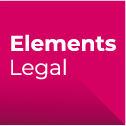As a result of European legislation, starting on 27 September 2020, undertakings in the Netherlands will be under an obligation to register beneficial owners or the persons with control over the entity with the UBO register. The objective of the register is to prevent financial economic crime, including money laundering, corruption, tax evasion and fraud. But what does the introduction of this register mean for your organisation? We will outline the most important information.
In April of 2019, a proposal was published in regard to the implementation of the fourth anti-money laundering Directive in the Netherlands. According to that Directive, each EU member state is required to maintain a register containing the data of ultimate beneficial owners. If an undertaking does not meet the registration requirements (within the prescribed deadline), this can amount to a fine between EUR 1,250 and EUR 1,250,000 for the UBO, the entity or both. Hence, it is crucial to register the UBO on time.
The UBO register
UBO stands for the ultimate beneficial owner or individual with ultimate control over an undertaking, foundation or association. A UBO is a natural person which each entity has at least one of.
There are three types of UBOs: the ownership-UBO, control-UBO and pseudo-UBO. The ownership UBO refers to one individual who directly or indirectly holds an interest of over 25%. The control UBO sees one individual having 25% voting power. If an ownership or control UBO cannot be identified, a pseudo-UBO will be entered into the register, namely a senior management official. For legal entities this is the director.
Duty to register
The following organisations have an obligation to register their UBOs:
- (unlisted) private limited liability companies and public limited companies (B.V.’s and N.V.’s);
- foundations, associations subject to UBO, mutual societies and cooperatives;
- partnerships, general partnerships, limited partnerships;
- shipping companies;
- European Cooperative Societies (SCEs);
- European Societies (SEs);
- religious communities;
- European Economic Interest Groupings.
However, the obligation to register UBOs does not apply to sole proprietorships, publicly listed companies, owners’ associations, legal persons governed by public law and certain historically significant legal entities. Non-Dutch undertakings do not have to register with the Netherlands UBO register.
Who can access the UBO register?
The UBO register is a component of the Netherlands Chamber of Commerce (KvK). Each entity must report the data of its own UBOs. The authorised signatories of an organisation are competent to register UBOs. The registration is free of charge.
Some data entered in the register will become public, such as name, residence and nationality. Additional data is only accessible to the Financial Intelligence Unit of the Netherlands (FIU) and certain competent authorities. This includes copies of valid identity documents and transcripts of documents indicating the nature and extent of economic interests. In the extraordinary event of risk of fraud, kidnapping or blackmail, a request can be made to conceal certain data. However, it will remain available to the FIU and competent authorities.
Has this article sparked any questions regarding the UBO register?
Do not hesitate to contact Elements Legal. Contact us via +31 20 700 5400 or info@elementslegal.com. We are happy to advise you!
